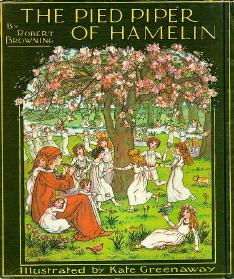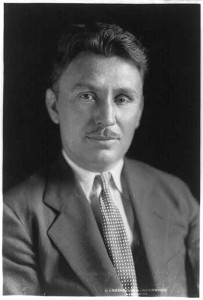Stephen Vincent Benet (born Bethlehem, Pennsylvania, 1898; died New York, New York, March 13, 1943) was a writer. He received a Pulitzer for John Brown’s Body, a long poem published in 1928. He won another Pulitzer for Western Star, printed in 1943. He also wrote short stories and novels. Children could learn more at: Stephen Vincent Benet.
Margery Williams Bianco (born London, England, 1881; died New York, New York, September 4, 1944) wrote at least 24 books for children. Her book Winterbound received a 1937 Newbery Honor Award. Using the pen name Mary Williams, she wrote The Velveteen Rabbit. Children can read The Velveteen Rabbit at Project Gutenberg.
Alexander Calder (born Philadelphia, Pennsylvania, 1898; died New York, New York, November 11, 1976) was an artist known for making enchanting mobiles. Children can visit a fascinating website at: Alexander Calder.
Patricia Calvert (born Great Falls, Montana, 1931) writes books for young adults. Her books include Sooner and The Stone Pony.
Daniel Carroll (born Upper Marlboro, Maryland, 1730; died Rock Creek, Maryland, May 7, 1796) represented Maryland at the Constitutional Convention. Having suffered religious persecution, he helped draft the first amendment and the tenth amendment. Children could learn more at: Daniel Carroll.
S. E. Hinton (born Tulsa, Oklahoma, 1948) writes books for children and young adults. One of her books is The Outsiders. She received the 1988 Margaret A. Edwards Award for her first five young adult books. Young adults can visit her website at: S. E. Hinton.
Emma Lazarus (born New York, New York, 1849; died New York, New York, November 19, 1887) wrote poetry. Part of her “The New Colossus” was inscribed on the base of the Statue of Liberty. Children can read some of her work at: Project Gutenberg.
Gregor Mendel (born Heinzendorf, Austria, 1822; died Brunn, Austria, January 6, 1884) was a monk who pioneered work in genetics. In 1856 he started experiments with pea plants in the monastery vegetable garden. He continued breeding and crossbreeding the plants for a number of years. He kept notes. His work was not seen until after his death. Older children can read about his experiments at: Mendel.
Reverend William Archibald Spooner (born London, England, 1844; died Oxford, England, August 29, 1930) frequently confused parts of words. These led to spoonerisms. For example, he might say “pony pest card,” instead of “penny post card.” Idea: Children could make up their own spoonerisms. Children could visit a website at: Spooner.


